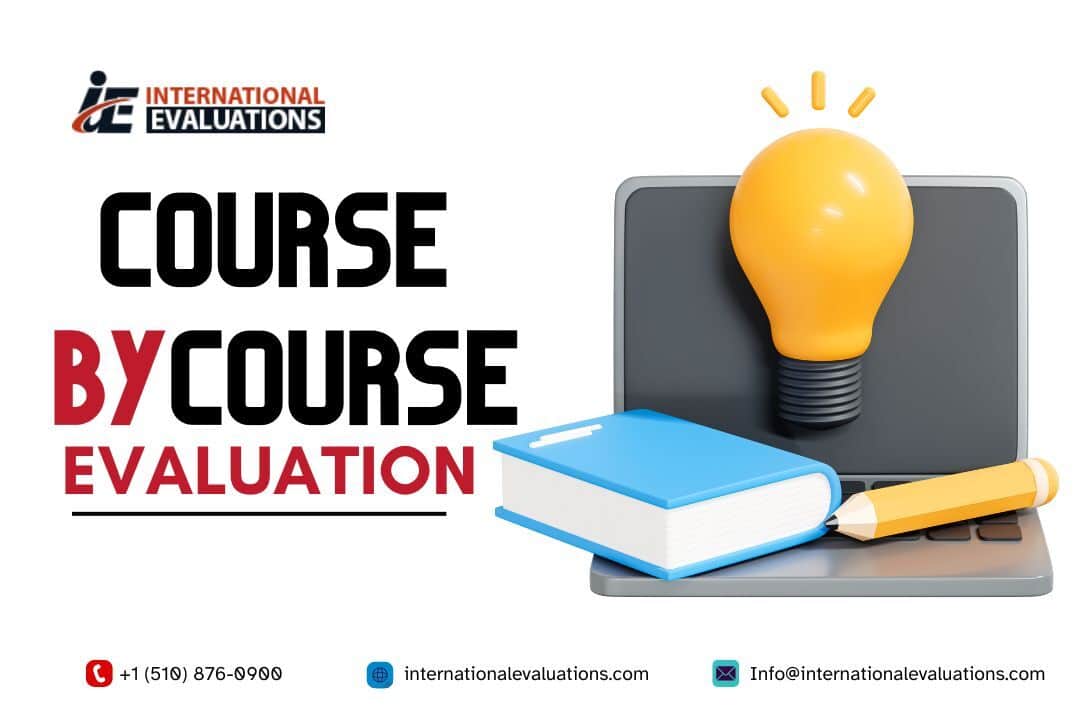Introduction
In an increasingly globalized world, the demand for experts who can browse global borders has actually never ever been higher. As companies expand their operations throughout continents, understanding the subtleties of work experience assessment becomes important for both employers and employees. This short article digs deep into the complexities of work experience evaluation, shedding light on its significance in global movement, the procedures included, and how it converges with scholastic credential evaluation and other important factors.
Understanding the Subtleties of Work Experience Examination for International Mobility
When we speak about work experience evaluation, we're basically talking about a structured technique to evaluate a person's professional background, abilities, and competencies in a global context. This examination is important for various stakeholders consisting of employers wanting to hire worldwide skill, people looking for work abroad, and educational institutions offering programs to boost employability.
Work experience evaluations assist bridge the gap in between varied international employment standards. They guarantee that appropriate experiences are acknowledged and valued properly. This process often consists of an expert viewpoint letter which supplies a comprehensive analysis of a prospect's certifications relative to industry standards.
The Significance of Work Experience Assessment in Global Mobility
Navigating International Standards
With various nations having varied criteria for examining professional experience, understanding these disparities ends up being important. An efficient work experience evaluation enables companies to align prospects' backgrounds with local expectations.
Enhancing Employability
For job hunters going for opportunities abroad, presenting a precise representation of their work history can substantially improve their employability. Evaluations carried out by reputable international credential evaluation services provide potential employers a clear image of what candidates bring to the table.
Key Parts of Work Experience Evaluation
1. File Verification
Document verification is fundamental in establishing the authenticity of a prospect's work experience. Each document needs to be scrutinized thoroughly to prevent fraud or misrepresentation.
2. Skill Assessment
A comprehensive ability assessment assesses the competencies obtained throughout previous employment. This may consist of technical skills as well as soft abilities like communication or management abilities.

3. Professional Viewpoint Letter
A professional opinion letter plays a critical role in confirming work experiences. It functions as an authoritative endorsement from recognized experts within specific markets or sectors.
Types of Credential Evaluations Related to Work Experience
1. Academic Credential Evaluation
This procedure evaluates educational qualifications acquired from organizations outside the nation where one seeks work or further education. Understanding how academic qualifications connect to work experiences is important as some functions need specific instructional backgrounds.
2. Course-by-Course Credential Evaluation
For candidates who want to show their scholastic standing together with practical experiences, course-by-course evaluations supply detailed breakdowns obviously taken, grades got, and equivalencies developed in relation to regional education systems.
3. Organization Strategy Evaluation
While mainly https://postheaven.net/gabilenjel/mastering-the-art-of-work-experience-examination-for-international relevant for business owners, service plan evaluations can link with work experience evaluations when people seek financing or collaborations based on their previous roles and achievements within particular industries.
The Process of Carrying out a Work Experience Evaluation
Conducting an extensive evaluation includes a number of steps:
- Collecting required files such as letters from previous employers, pay stubs, or job descriptions. Engaging with global credential examination services that concentrate on assessing foreign work experiences. Compiling findings into extensive reports that overview validated abilities and experiences clearly.
Challenges in Work Experience Evaluation
Despite its significance, there are difficulties related to assessing work experience worldwide:
- Variability in task titles and duties throughout various cultures can make complex comparisons. Inconsistencies in paperwork practices may cause difficulties in verifying claims made by candidates.
Best Practices for Efficient Work Experience Evaluation
To make sure precision and fairness in evaluations:

Future Trends in Work Experience Evaluations
As globalization continues to develop:
- We expect increased use of artificial intelligence tools to enhance evaluations. More focus will likely be put on soft abilities and adaptability along with standard tough skills due to altering labor force dynamics.
FAQs
Q1: What is a skilled viewpoint letter?
An expert opinion letter is a file supplied by market experts that verifies an individual's credentials or experiences according to industry standards.
Q2: How does scholastic credential assessment effect work experience?
Academic credential examinations help contextualize educational certifications versus regional expectations, improving understanding during work experience assessments.
Q3: Why do I require a course-by-course credential evaluation?
A course-by-course credential examination supplies in-depth insights into your academic history, showing how your education matches your professional experiences.
Q4: Can my previous job title affect my work experience evaluation?
Yes! Job titles vary widely throughout regions; therefore it's vital that critics think about obligations instead of titles alone when assessing qualifications.
Q5: What types of documents are required for work experience evaluations?
Generally needed files consist of letters from previous employers detailing your role/responsibilities, pay stubs showing duration at each position, and any related accreditations earned throughout employment.
Q6: For how long does a typical work experience assessment take?
The duration can differ commonly based on complexity however usually varies from several weeks approximately 3 months depending upon documents schedule and verification needs.
Conclusion
Understanding the subtleties of work experience evaluation is vital for navigating today's global workforce landscape efficiently. By appreciating the intricacies included-- varying from documentation confirmation through expert opinion letters-- it ends up being clear that this process is not simply bureaucratic but deeply important to guaranteeing that skill is acknowledged precisely throughout borders.
As companies increasingly worth diverse perspectives brought by international talent swimming pools, those included-- be it job hunters or employers-- should stay informed about best practices surrounding these examinations while likewise adjusting as trends progress within this dynamic field.
By harnessing reputable resources such as scholastic credential examinations and engaging with reputable worldwide credential evaluation services, people can reinforce their profiles substantially while organizations can make informed hiring choices aligned with their strategic goals-- eventually fostering growth within our interconnected world economy.